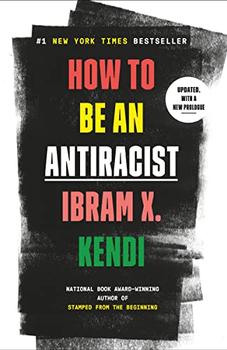Summary | Excerpt | Reviews | Beyond the Book | Readalikes | Genres & Themes | Author Bio

"The evangelical church ... supported the status quo. It supported slavery; it supported segregation; it preached against any attempt of the Black man to stand on his own two feet."
Skinner shared how he came to worship an elite White Jesus Christ, who cleaned people up through "rules and regulations," a savior who prefigured Richard Nixon's vision of law and order. But one day, Skinner realized that he'd gotten Jesus wrong. Jesus wasn't in the Rotary Club and he wasn't a policeman. Jesus was a "radical revolutionary, with hair on his chest and dirt under his fingernails." Skinner's new idea of Jesus was born of and committed to a new reading of the gospel. "Any gospel that does not ... speak to the issue of enslavement" and "injustice" and "inequality—any gospel that does not want to go where people are hungry and poverty-stricken and set them free in the name of Jesus Christ—is not the gospel."
Back in the days of Jesus, "there was a system working just like today," Skinner declared. But "Jesus was dangerous. He was dangerous because he was changing the system." The Romans locked up this "revolutionary" and "nailed him to a cross" and killed and buried him. But three days later, Jesus Christ "got up out of the grave" to bear witness to us today. "Proclaim liberation to the captives, preach sight to the blind" and "go into the world and tell men who are bound mentally, spiritually, and physically, 'The liberator has come!' "
The last line pulsated through the crowd. "The liberator has come!" Students practically leapt out of their seats in an ovation—taking on the mantle of this fresh gospel. The liberators had come.
My parents were profoundly receptive to Skinner's call for evangelical liberators and attended a series of Black caucuses over the week of the conference that reinforced his call every night. At Urbana '70, Ma and Dad found themselves leaving the civilizing and conserving and racist church they realized they'd been part of. They were saved into Black liberation theology and joined the churchless church of the Black Power movement. Born in the days of Malcolm X, Fannie Lou Hamer, Stokely Carmichael, and other antiracists who confronted segregationists and assimilationists in the 1950s and 1960s, the movement for Black solidarity, Black cultural pride, and Black economic and political self-determination had enraptured the entire Black world. And now, in 1970, Black power had enraptured my parents. They stopped thinking about saving Black people and started thinking about liberating Black people.
In the spring of 1971, Ma returned to Nyack College and helped form a Black student union, an organization that challenged racist theology, the Confederate flags on dorm-room doors, and the paucity of Black students and programming. She started wearing African-print dresses and wrapped her growing Afro in African-print ties. She dreamed of traveling to the motherland as a missionary.
Dad returned to his church and quit its famed youth choir. He began organizing programs that asked provocative questions: "Is Christianity the White man's religion?" "Is the Black church relevant to the Black community?" He began reading the work of James Cone, the scholarly father of Black liberation theology and author of the influential Black Theology & Black Power in 1969.
One day in the spring of 1971, Dad struck up the nerve to go up to Harlem and attend Cone's class at Union Theological Seminary. Cone lectured on his new book, A Black Theology of Liberation. After class, Dad approached the professor.
"What is your definition of a Christian?" Dad asked in his deeply earnest way.
Cone looked at Dad with equal seriousness and responded: "A Christian is one who is striving for liberation."
James Cone's working definition of a Christian described a Christianity of the enslaved, not the Christianity of the slaveholders. Receiving this definition was a revelatory moment in Dad's life. Ma had her own similar revelation in her Black student union—that Christianity was about struggle and liberation. My parents now had, separately, arrived at a creed with which to shape their lives, to be the type of Christians that Jesus the revolutionary inspired them to be. This new definition of a word that they'd already chosen as their core identity naturally transformed them.
Excerpted from How to Be an Antiracist by Ibram X Kendi. Copyright © 2019 by Ibram X Kendi. Excerpted by permission of One World. All rights reserved. No part of this excerpt may be reproduced or reprinted without permission in writing from the publisher.
Flaming enthusiasm, backed up by horse sense and persistence, is the quality that most frequently makes for ...
Click Here to find out who said this, as well as discovering other famous literary quotes!
Your guide toexceptional books
BookBrowse seeks out and recommends the best in contemporary fiction and nonfiction—books that not only engage and entertain but also deepen our understanding of ourselves and the world around us.